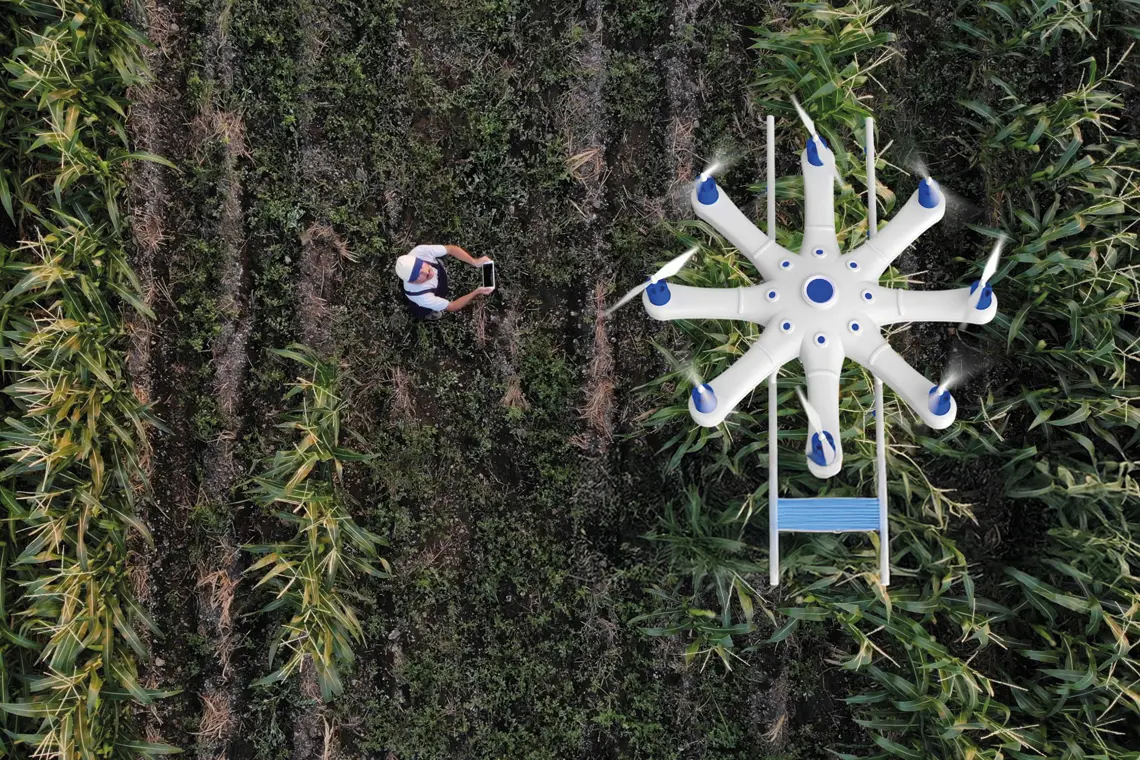Canada’s agribusiness and food processing sector is becoming a major draw for Foreign Direct Investment (FDI), leveraging the country’s abundant natural resources, cutting-edge technology, and access to global markets. As the demand for sustainable and innovative food solutions grows, international investors are looking to Canada as a hub for agricultural innovation and food production.
Why Canada Attracts FDI in Agribusiness and Food Processing
1. Natural Resources and Agricultural Expertise
Rich Farmland: Canada boasts over 167 million acres of arable land, making it one of the largest agricultural producers globally.
Diverse Climate: The country’s varied climates support a wide range of crops, from wheat and canola to fruits and vegetables.
Established Industry: Canada’s long history in agriculture provides a strong foundation for modern agribusiness ventures.
2. Advanced Technology and Innovation
AgTech Leadership: Canadian companies are pioneers in precision farming, drone technology, and AI-driven crop management.
Food Processing Innovation: The integration of automation and AI in food manufacturing boosts efficiency and product quality.
3. Global Market Access
Trade Agreements: Agreements like CUSMA and CETA give Canada preferential access to major markets in North America and Europe.
Proximity to the US: Easy access to the US market makes Canada an attractive location for cross-border agribusiness operations.
4. Sustainability Focus
Green Practices: Canada’s commitment to sustainable farming and renewable energy attracts ESG-conscious investors.
Low-Carbon Solutions: Initiatives to reduce greenhouse gas emissions in agriculture enhance the sector’s global appeal.

Key Regions for Agribusiness and Food Processing FDI
1. Saskatchewan
Key Features: Known as the breadbasket of Canada, Saskatchewan is a leader in wheat and canola production.
Notable Investments: Protein Industries Canada (PIC) is fostering innovation in plant-based proteins.
Specialization: Grain exports and sustainable crop solutions.
2. Alberta
Key Features: Strong in livestock farming and biofuel production.
Notable Companies: Cargill and JBS Foods have major operations in the province.
Specialization: Meat processing and renewable energy integration in farming.
3. Ontario
Key Features: A hub for food manufacturing and AgTech innovation.
Notable Investments: Nestlé’s expansion in food processing facilities.
Specialization: Value-added food products and advanced food technologies.
4. British Columbia
Key Features: A leader in aquaculture and organic farming.
Notable Investments: Marine Harvest’s sustainable seafood production facilities.
Specialization: Fisheries and niche agricultural products.
FDI in Canada’s Agribusiness Sector
| Region | Key Specializations | FDI Attracted (2023) | Jobs Created | Notable Projects |
|---|---|---|---|---|
| Saskatchewan | Grain, Plant-Based Proteins | $2.8 billion | 12,000 | Protein Industries Canada Initiatives |
| Alberta | Livestock, Biofuels | $2.4 billion | 10,000 | Cargill Meat Processing Expansion |
| Ontario | Food Manufacturing, AgTech | $3.1 billion | 15,000 | Nestlé Food Processing Facilities |
| British Columbia | Aquaculture, Organic Farming | $1.9 billion | 8,000 | Marine Harvest Sustainable Seafood |

Trends Driving FDI in Agribusiness and Food Processing
1. Rise of Plant-Based Proteins
Growing Demand: Global demand for plant-based foods is boosting investment in alternative protein production.
Canadian Leadership: Companies like Beyond Meat and Maple Leaf Foods are expanding their operations in Canada.
2. Precision Agriculture
Tech Adoption: Use of AI, IoT, and drone technology in farming enhances productivity and reduces waste.
Investment in AgTech: Startups focusing on smart farming solutions are attracting venture capital.
3. Sustainability and Circular Economy
Eco-Friendly Practices: Investments in renewable energy, water conservation, and waste management are shaping the sector.
Carbon Reduction: Initiatives to lower emissions in food processing attract ESG-focused investors.
4. Food Security and Innovation
Resilient Supply Chains: Canada’s strong infrastructure and stable economy support global food security initiatives.
R&D Investments: Funding for research in crop genetics and sustainable farming practices enhances competitiveness.

Challenges and Opportunities
Challenges
Climate Change: Unpredictable weather patterns impact crop yields and farming operations.
Labor Shortages: Ensuring a steady workforce for farming and food processing.
Opportunities
Global Partnerships: Collaborating with international agribusiness leaders to scale innovations.
Policy Support: Leveraging government incentives to boost sustainable practices.
Future Outlook
Canada’s agribusiness and food processing industry is poised for significant growth, driven by innovation, sustainability, and global market demand. As the country continues to invest in advanced technologies and green solutions, its position as a top destination for agribusiness FDI will only strengthen.



















